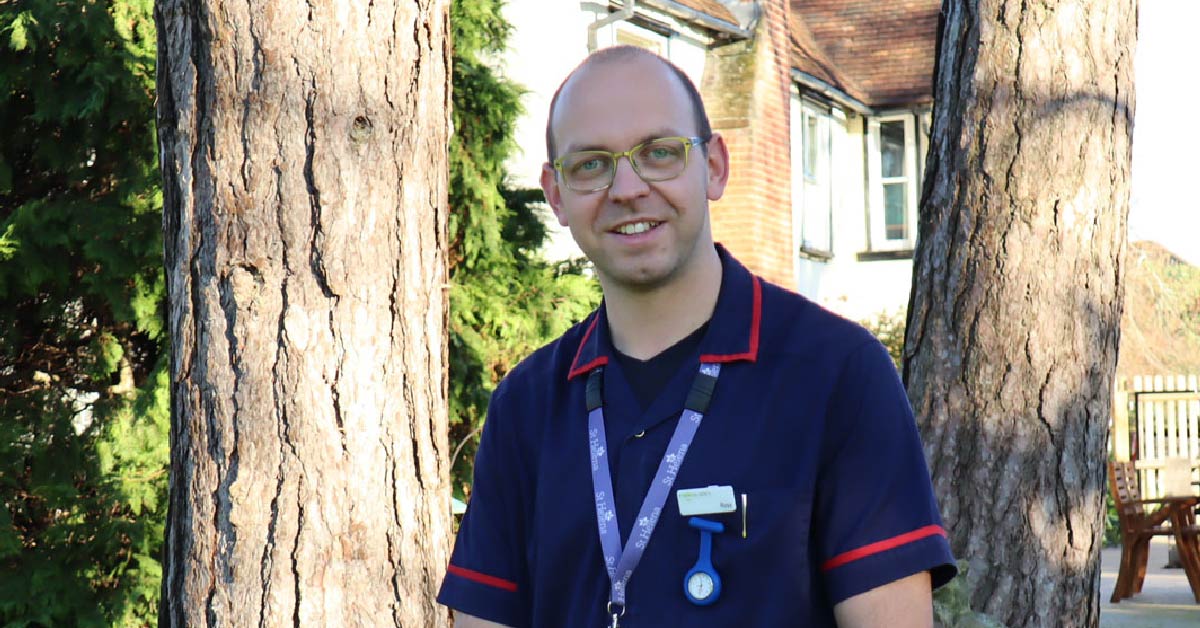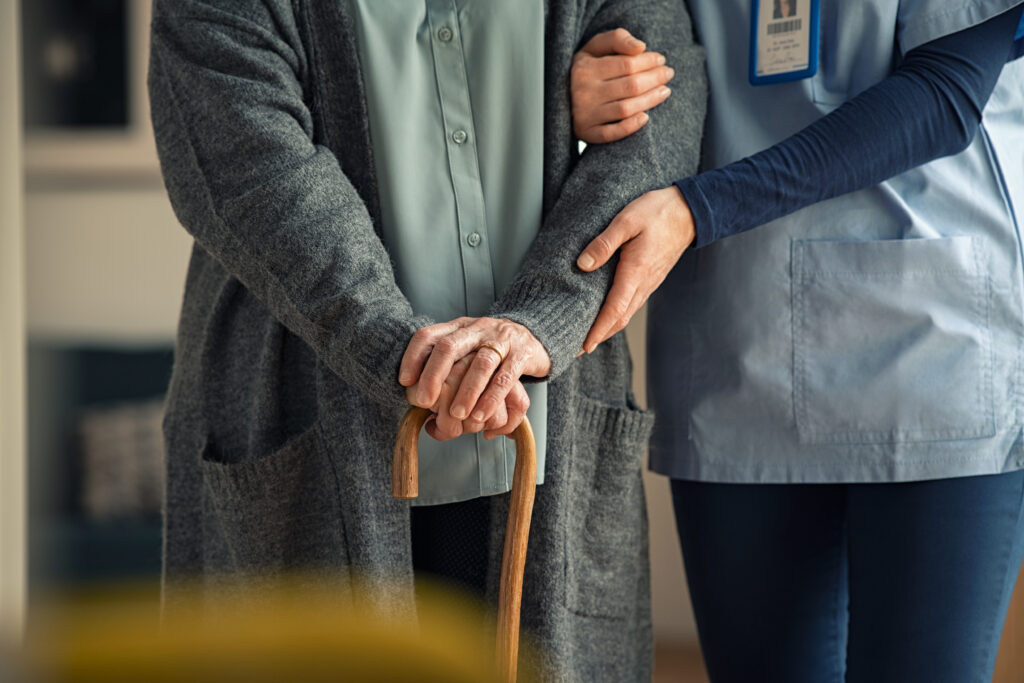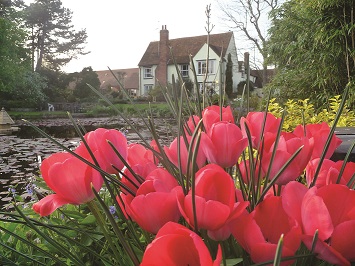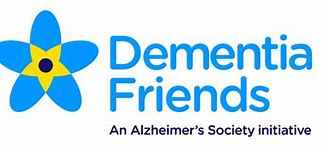Site Navigation
Ross’ Story

Ross Chirgwin works for our hospice partner St Helena Hospice. He visits people at home across the whole of north east Essex when there is an urgent need or they are in crisis, day or night. Ross is a rapid response clinical nurse specialist (CNS) and non-medical prescriber (NMP) in the St Helena Hospice SinglePoint team.
Q&A with Ross:

Tell us Ross, what is a non-medical prescriber?
Nurse prescribing, or also known as non-medical prescribing, is an additional course that nurses and other health professionals can go on in order to be able to prescribe any medication.
Especially for us within the hospice setting, it’s looking at prescribing the more specialist type medications that perhaps other services can’t prescribe, but because we’re in a specialist field we can do that.
It’s all about allowing quick access to medications for patients, timely prescribing, and then hopefully improving their symptom control as well.
It allows us to prescribe urgent medications for symptom control – so for pain, sickness, agitation – for patients at the end of life, and for managing people’s symptoms.
What is a rapid response CNS?
When the pandemic hit, because I can prescribe, I moved over from community CNS to SinglePoint and now I do rapid responses across the whole area so we can get out to people quickly.
We respond to people within the community who require urgent assessment and symptom management. That’s why the prescribing aspect is such an important part of it because we’re getting to people when they’re in a crisis, complete the assessment, come up with a plan and implement that plan quickly. Being able to prescribe allows that to happen.
As rapid response CNSs, we don’t know what’s going to happen each shift. I always describe it as a bit like a palliative A&E department; we never know what’s going to come from the phone. I come into the start of the shift not having any visits to do and then within an hour or so, I’m out and about visiting all day. It’s really good, it’s very rewarding.

How does being able to prescribe benefit patients?
For us, especially the role we do as a CNS, being able to be there at the patient’s bedside, being able to do a full assessment and then come up with a plan and implement that plan, is really beneficial for the patients. Being able to do the whole point of care rather than having to rely on other services to prescribe medication; we can do a prescription straight away and that allows the family to collect the medication and we can get the medication started a lot quicker.
If we didn’t have nurses in this role, there would be time delays for patients to have their symptoms managed and for prescriptions to be prescribed, especially for the urgent point of care that is needed, not only during the week, but out of hours too, seven day a week.
I think the real benefits for patients is managing the symptoms quickly, improving the experience for patients and families by being able to obtain their medications quickly, and ultimately by being able to manage that. We’re preventing people from ending up in hospital and instead keeping patients in their preferred place of care, rather than them calling an ambulance and be sitting in A&E if we couldn’t manage their symptoms at home.
What’s the impact of your role?
For the patients and families, it’s knowing that people can respond quickly, and I think that’s really important. Knowing the person who’s there is then able to do everything, prescribe the medication, and implement the plan quickly. I think we gain a lot of trust from patients and families by being able to do that.
I think the emotional impact for me is I feel like I have real job satisfaction from the work I do knowing that I’ve been to a patient and then I’m able to get them the medication they need quickly. Quite often, while I’m there I can write some urgent prescriptions and while I’m still in the home, family members go off to collect the medications, come back, and then we can give that medication straight away. I get a real job satisfaction knowing I can provide that whole care.
What’s important within the hospice is that we focus on holistic care. It’s not just all about medications; we focus on the emotional, physical, spiritual and wellbeing of the person. Having their medications available as well helps complete the whole package of care for that person.
Just today, I went to visit a patient who had been suffering with severe agitation and distress overnight. The medications they had currently weren’t sufficient in managing their symptoms, so I was able to attend, complete an assessment, write some urgent prescriptions which the family was then able to get straight away in order to make that person more settled. So doing all that with one visit makes a real impact for that person, being able to access the medications at a timely place and timely manner.
Often the first thing families do when you talk about medications, is look like they’re panicking about how they’re going to get the medication, where they’re going to get it from, how quickly… and when I say I can do a prescription now, the families look relieved, knowing that they can access the medication straight away.

Why nursing, Ross?
I always wanted to do something in this field for years, since I was young, just to help people, have an impact on patients and people’s lives.
What I enjoy about my role is I never know what’s going to happen on that day. It’s very responsive and we have such a big impact on patients in the community which I think is really important. That’s the crux of what I do and why I do what I do; to have a real impact and care for people and keep them where they want to be cared for. Being there for people and their families is the crux of it.
I think a lot of the time, especially the role I do, when people answer the door, they get a sense of relief that there’s someone there to take control of the situation and hopefully help them and guide them in the right way.
It’s making that impact for people. It’s the last time you get to care for that person, and I think it’s a really important part of someone’s life and you can’t mess it up. It needs to be done right and working in palliative care, I think you can really make that kind of connection with patients and their families, and just keep people comfortable and keep people where they want to be.
















